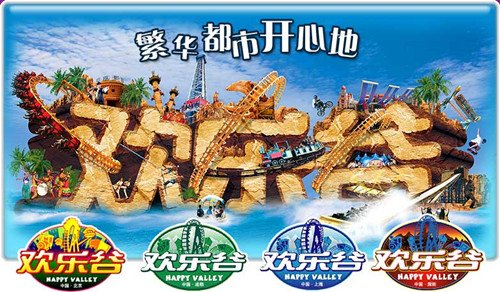Drive diversified development
Statistics show that by 2009, only 25% of all Chinese theme parks managed to profit, and 45% barely broke even.
A report by the Boston Consulting Group estimated that China will surpass Japan as the second largest tourism market in 2013. Tourism revenues from the domestic market are speculated to grow at 16% per year and reach a value of 3.9 trillion yuan in 2020, noting a doubled recreational tourism income.
Opportunities are even for Chinese theme parks and the Shanghai Disney Park. After the first three years, the latter is expecting around 10 million visitors every year, based on the current annual data of over 100 million travelers in Shanghai.
Quoting Dr. Yang Zhengtai of Fudan University, the whole Yantze Delta will benefit from tourism further contributed to by the high-speed railways.
The twenty-year history of Chinese theme parks has achieved certain progress. For instance, the Songcheng Theme Park in Hangzhou is special for performance shows; Happy Valley in Shenzhen is attractive for its systematic hotel, park, and exhibition hall services.
The right strategy for Chinese theme parks is to stick to their current route and develop novel ideas to draw the public attention, on the basis of a more affordable price range than the Disney Park.
Localization
Disney has particularly designed a resort "that reflects everything we have learned from our various parks around the world," said Iger.
"China is one of the most dynamic, exciting, and important countries in the world, and this approval marks a very significant milestone for the Walt Disney Company in mainland China."
The unprecedented trial proved Disney's ambition in conquering the Chinese market and establishing itself as a real champion among world theme parks.
"Authentically Disney, but distinctly Chinese," Iger described the resort in an interview. "There will certainly be familiar Disney elements, but it will also be quite different from the moment that you walk through the gates."
It will be necessary for local Chinese theme parks to distinguish their own features and play the native culture card to rival the foreign competitor.
The Hengdian World Studios, known as the "Chinese Hollywood," explored a volcano program combining the ancient Chinese concept of yin-yang and five elements.
"Application of Chinese cultural elements into business operation is the best illustration of the culture itself," said Jiang Zuyun, planning manager at the Hengdian World Studios.


















